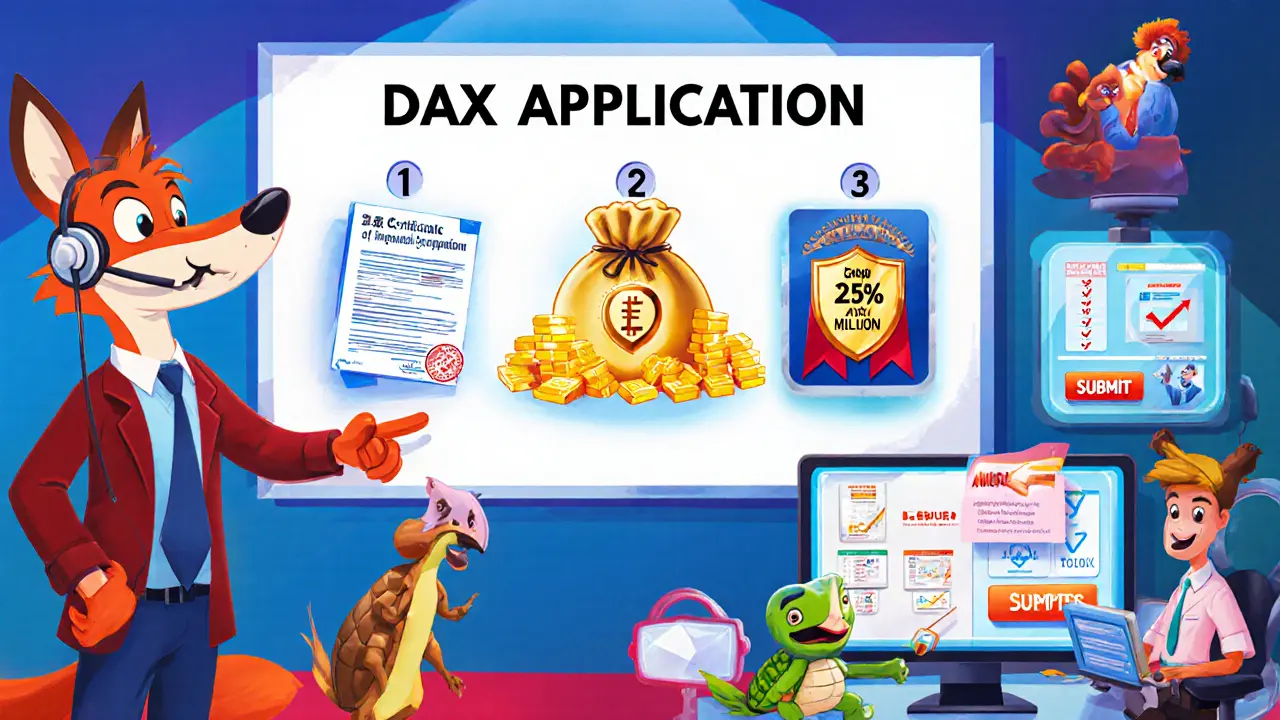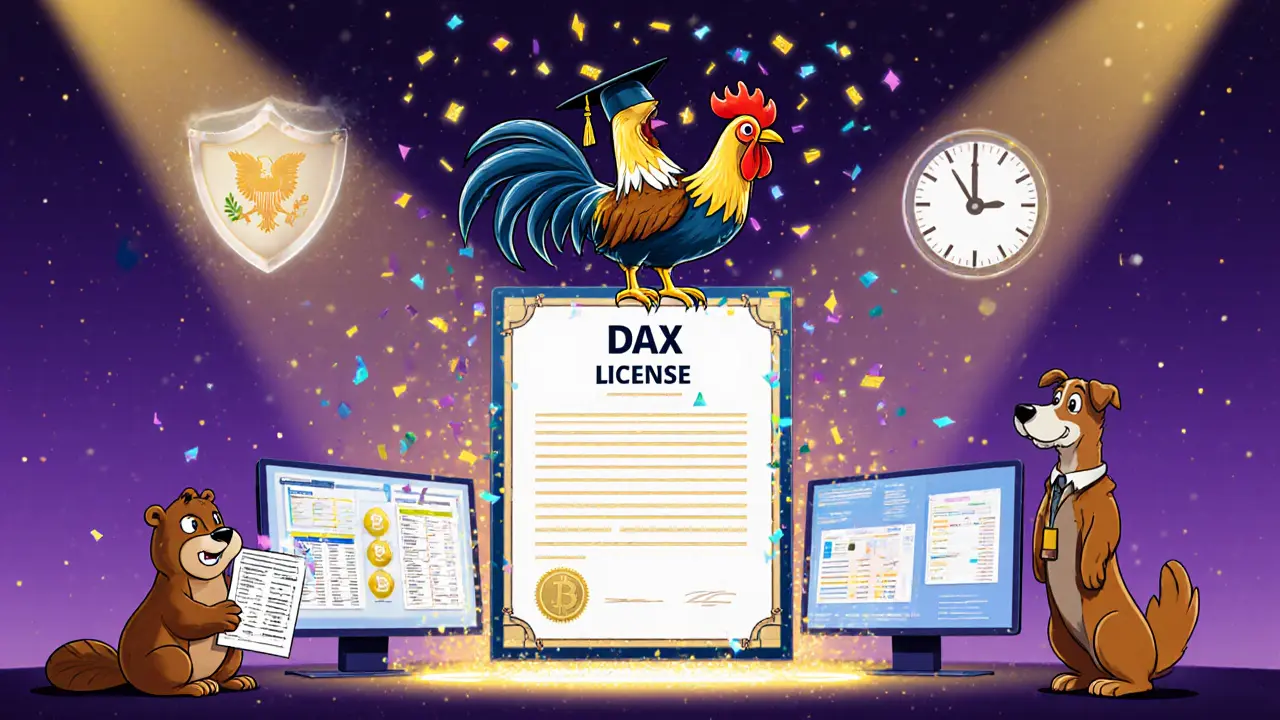
Nigeria SEC Crypto Exchange Licensing Calculator
Calculate Your Minimum Requirements
Enter your proposed paid-up capital to calculate the required fidelity bond and other licensing details.
Your Licensing Requirements
- Minimum Capital Required ₦500,000,000
- Required Fidelity Bond ₦125,000,000
- Fidelity Bond Percentage 25%
- Capital Proof Options Cash, Fixed Assets, Quoted Securities
- Compliance Requirement AML/KYC Policy
Running a cryptocurrency exchange in Nigeria now means navigating a brand‑new regulatory maze drawn by the Nigerian Securities and Exchange Commission (SEC). The Investments and Securities Act 2025 officially treats digital tokens as securities, so every platform must prove it can play by the rules before it can accept a single trade. This guide walks you through the exact steps, capital thresholds, compliance duties and common pitfalls so you can get a crypto licensing requirement checklist that actually works.
TL;DR - Quick Reference
- Register as a Digital Asset Exchange (DAX) under the SEC’s 2025 framework.
- Minimum paid‑up capital: ₦500million (≈$325k) plus a fidelity bond of at least 25% of that amount.
- Submit CAC incorporation documents, updated MEMART, audited financials and a detailed AML/KYC policy.
- Pass the Accelerated Regulatory Incubation Programme (ARIP) for faster provisional licensing.
- Comply with strict “No Objection” asset‑listing rules and prohibitions on financial assistance to users.
1. The Legal Backbone - Investments and Securities Act 2025
The Investments and Securities Act 2025 (ISA2025) replaced the old ISA2007 and placed digital assets squarely under SEC jurisdiction. Section4 declares any token that confers economic rights as a security, obligating its issuer and any trading platform to a full set of securities regulations. The Act gives the SEC authority to issue, amend and enforce the “SEC Rules on Issuance, Offering Platforms and Custody of Digital Assets” - the rulebook that defines what a Digital Asset Exchange (DAX) must look like.
Key take‑away: If your platform deals with tokens that represent ownership, profit‑share or voting rights, you are automatically a securities market participant and must be licensed.
2. How to Register as a Digital Asset Exchange (DAX)
Licensing is a five‑stage process. Below is a step‑by‑step flow that covers everything the SEC expects in a DAX application.
- Prepare Corporate Documents: Obtain a Certificate of Incorporation from the Corporate Affairs Commission (CAC), update your Memorandum and Articles of Association to explicitly mention “cryptocurrency exchange” as a business objective, and complete CAC Forms1.1 and7.
- Demonstrate Capital Adequacy: Show bank statements or audited statements proving a paid‑up capital of at least ₦500million. The SEC will verify source of funds to prevent money‑laundering.
- Secure a Fidelity Bond: Purchase a bond or surety covering a minimum of 25% of paid‑up capital (₦125million). The bond must be issued by a licensed insurer or financial institution recognized by the SEC.
- Submit Compliance Blueprint: Provide a detailed AML/KYC policy, transaction monitoring plan, and internal controls manual. Reference the Central Bank of Nigeria (CBN) guidance where applicable.
- Apply Through the SEC Portal: Upload all documents to the SEC’s online licensing portal, pay the application fee (currently ₦10million), and request a “No Objection” clearance for your first set of listed tokens.
After submission, the SEC conducts a 30‑day technical review followed by a 60‑day audit. If you’re part of the ARIP, those timelines shrink to 14days for review and 30days for audit.
3. Capital, Bonds and Financial Health
The capital floor of ₦500million is designed to ensure that only financially robust players can survive market turbulence. The SEC allows three forms of capital proof:
- Cash reserves held in a Nigerian commercial bank.
- Fixed assets such as data‑center infrastructure, valued by an approved auditor.
- Investments in quoted securities listed on the Nigerian Stock Exchange, with market‑value verification.
A fidelity bond must be in place before the license is issued. It serves as a safety net for client funds in the event of operational failure. The bond’s minimum size (₦125million) can be raised later, but the SEC will not accept a license that lacks sufficient coverage.

4. AML, CFT and KYC - The Compliance Core
While the ISA2025 does not prescribe exact AML procedures, it mandates that every DAX adopt “robust” controls consistent with the CBN’s Anti‑Money‑Laundering (AML) Circular2023 and the Financial Action Task Force (FATF) recommendations.
Essential compliance components:
- Customer Identification Program (CIP): Collect full name, government‑issued ID, BVN (Bank Verification Number), and residential address. Verify using real‑time API services.
- Enhanced Due Diligence (EDD) for high‑risk customers - political exposed persons (PEPs), large transaction volumes (>₦5million per month), or links to offshore wallets.
- Transaction Monitoring: Set thresholds for rapid trade‑volume spikes, rapid token switches, and cross‑border transfers. Generate automated SAR (Suspicious Activity Report) alerts to the Financial Intelligence Unit (FIU).
- Record‑Keeping: Retain all KYC documents and transaction logs for a minimum of five years, stored in encrypted form on a secure server located within Nigeria.
Failure to meet these obligations can trigger fines up to ₦10million per breach or criminal prosecution for senior executives.
5. Operational Restrictions You Can’t Ignore
The SEC has built a series of “guardrails” to protect investors and keep markets orderly.
- No financial assistance: Exchanges cannot subsidise user trades, offer “free” tokens, or guarantee profits.
- “No Objection” rule: Before any token is listed, the exchange must obtain explicit SEC approval. The SEC reviews the token’s whitepaper, tokenomics and compliance with securities law.
- Foreign operator constraints: Non‑Nigerian firms targeting Nigerian users must register a local subsidiary, appoint a Nigerian resident director, and meet the same capital and bond requirements.
- Marketing limits: Direct email campaigns, social media ads or influencer promotions directed at Nigerian residents are only permissible after a SEC clearance.
Violating any of these rules can lead to licence suspension, heavy fines, or outright revocation.
6. Accelerated Regulatory Incubation Programme (ARIP)
The Accelerated Regulatory Incubation Programme (ARIP) was launched in June2024 to fast‑track promising startups. Applicants submit a condensed dossier (executive summary, MVP demo, compliance skeleton) and receive a provisional licence within 30days if they meet a set of “minimum viable compliance” criteria.
Two pioneers-Quidax and Busha-have already secured provisional licences under ARIP. Their experience offers practical clues:
- Focus on a lean AML/KYC engine that can be expanded later.
- Maintain transparent capital accounts; auditors liked the real‑time dashboard Quidax provided.
- Engage early with the SEC’s sandbox team to test token‑listing workflows.
If you’re aiming for a swift launch, ARIP is the fastest route. However, remember that provisional licences still require a full audit within six months to convert to a permanent DAX licence.
7. Common Pitfalls and Pro Tips
Even with a checklist in hand, operators slip up. Here are the most frequent errors and how to avoid them:
| Mistake | Why It Happens | Best Practice |
|---|---|---|
| Under‑estimating capital proof | Relying only on cash deposits | Include a mix of cash, audited fixed‑asset valuations, and quoted‑security holdings. |
| Missing fidelity bond | Assuming bond can be added later | Secure the 25% bond before filing the application. |
| Inadequate KYC data | Trying to speed onboarding | Implement real‑time ID verification and store records securely for five years. |
| Listing tokens without SEC “No Objection” | Misunderstanding the rule as advisory | Submit the token whitepaper for approval before any public listing. |
| Ignoring foreign‑operator requirements | Assuming offshore licence suffices | Establish a Nigerian subsidiary with a local director and meet all capital/bond rules. |
Pro tip: Run a mock audit with an independent compliance firm before the SEC’s official review. That extra step often surfaces hidden gaps and saves weeks of back‑and‑forth.
8. What Happens After You Get Licensed?
License issuance is not the finish line. Ongoing obligations include:
- Quarterly financial statements filed with the SEC.
- Annual AML/KYC audit by an approved auditor.
- Continuous “No Objection” requests for every new token.
- Prompt reporting of any security breach to the SEC and the Nigerian Data Protection Regulation (NDPR) within 72hours.
Meeting these duties keeps the licence active and builds trust with both regulators and users.

Frequently Asked Questions
Do I need a licence to operate a peer‑to‑peer (P2P) crypto platform?
Yes. The ISA2025 treats any service that matches buyers and sellers of digital assets as a virtual asset service provider, which requires a DAX licence regardless of whether you hold custody of the tokens.
Can a foreign exchange list Naira‑denominated stablecoins?
Only if the foreign entity sets up a Nigerian subsidiary, meets the capital and bond thresholds, and obtains a “No Objection” clearance for each stablecoin from the SEC.
What is the timeline for a standard licence vs. ARIP?
Standard applications typically take 90‑120days from submission to issuance. ARIP reduces the review phase to 30days and the audit phase to an additional 30days, provided the applicant meets the minimum compliance baseline.
What penalties exist for violating the “No Objection” rule?
The SEC can impose a fine of up to ₦50million per unauthorized listing, suspend trading for the offending token, and in severe cases, revoke the DAX licence entirely.
How often must the fidelity bond be renewed?
The bond must remain in force for the life of the licence and be re‑validated during each annual SEC audit. Any increase in paid‑up capital triggers a proportional increase in bond coverage.





